Historiography of IsraelCIE+
The writing of any history is an art and not a science. History is not stagnant because there are always new materials discovered and new means used to analyze data. There is the bias and…

The writing of any history is an art and not a science. History is not stagnant because there are always new materials discovered and new means used to analyze data. There is the bias and…
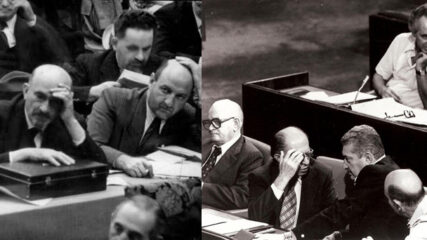
Neither Israel’s political culture nor Israel’s democracy based on Jewish self determination simply materialized on May 15, 1948. A connection exists from Jewish self-rule in the Diaspora to Zionist political autonomy during the Yishuv and to contemporary Israeli political culture. Likewise, the origins of Israeli democracy are found in the hundreds of years of Jewish Diasporas transitioning into the Zionist movement to the state; from aliyot before the Palestine Mandate to 1948 and since. Components of Israeli political culture…
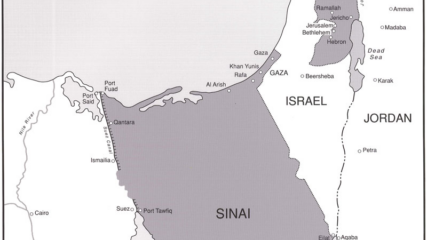
Enormous tension and risks taken by Egyptian and Israeli leaderships are recounted in a brief chronology of events that led to the June 1967 war, a benchmark turning point in Middle Eastern, Israeli, and Jewish history.

להיות עם חופשי בארצנו Zionism’s two part history, Early History to 1897 and Zionism 1898 to 1948 Where has Zionism succeeded? What remains incomplete or unfinished? Finished or well-shaped results of Zionism Unfinished results…

Ken Stein, May 1, April 4, March 22, March 5, February 11, 2023 Four months after Benjamin Netanyahu, was sworn in as Prime Minister to lead Israel’s 37th government in late December 2022, his cabinet focused…
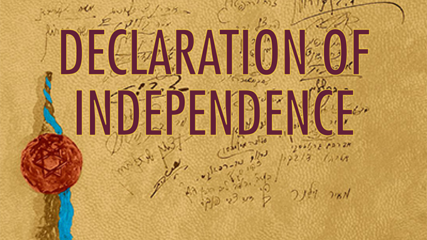
Explore the foundational text of the State of Israel.
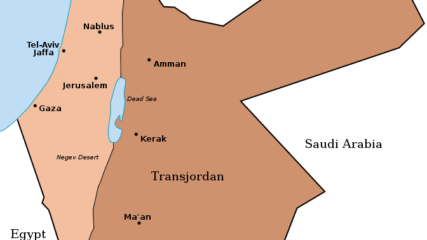
The Jordanian, Israeli, Palestinian Triangle Ken Stein January 27, 2023 From the June 1967 War, when Israel captured lands on the West Bank of the Jordan River, portions of Jerusalem, the Gaza Strip and the…

On a stormy evening on Sept. 17, 1978, with President Jimmy Carter as their witness, Egyptian President Anwar Sadat and Israeli Prime Minister Menachem Begin stepped to a table at the White House and signed the Camp David Accords, consisting of two framework agreements: an outline for the Egyptian-Israeli Peace Treaty and a scaffold for planning self-rule for the Palestinians living in the West Bank and Gaza Strip, held by Israel since the June 1967 war. Six months later, on March 26, 1979, the three men gathered again at the White House to sign the peace treaty. But their path to the ceremony 40 years ago was hardly smooth.

On January 1, 2022, I completed 43 years of teaching at Emory University. It was a great run and great fun. Along the way, I accumulated more pieces of paper than was necessary, among them…
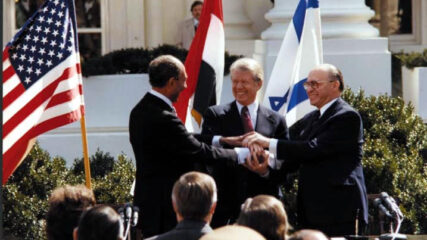
March 26, 2025 By Ken Stein The ripe conditions that prefaced the 1979 Egyptian-Israeli treaty and might presage additional Arab-Israeli agreements are almost totally absent in 2025. Why? Today, there is an absence of political…

The first version of the Jewish National Library was founded in 1892 in Jerusalem, five years before the First Zionist Congress met; its location evolved to Mount Scopus in Jerusalem during the British Mandate and then after the 1948 war, the library’s books were moved to the Rehavia section of Jerusalem, and then in 1960 to Givat Ram campus of the Hebrew University. As a visiting graduate student from The University of Michigan in the summer of 1971, I walked into the mediocrely lit yet vast reading room of the Library.
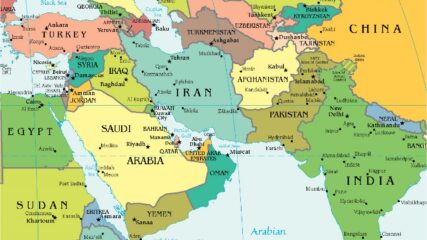
In August 2021, the U.S. withdrew its military from Afghanistan, ending America’s longest war. Correctly, we needed to prevent another 9/11 on our doorsteps. We still have that imperative. Our departure does not diminish America’s need for stable allies, like Israel and Arab states. The US should build an effective alliance system among them. We should have a small, substantive and selective US footprint in the region for support of friends and deterrence of foes, not for nation-building.
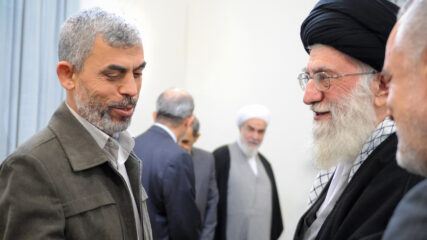
Yahya Sinwar, the Hamas leader in Gaza and mastermind of the October 7 attack, repeatedly expressed his desire to destroy Israel and his gratitude for Iran’s support.

Nine pre-conditions that enabled Arab-Israeli negotiations to unfold successfully in the 1970s and 1990s are not present today. Egyptian-Israeli and Jordanian-Israeli agreements occurred because the respective sides wanted them and needed them.

Do you think any of the Maccabees would have guessed that the one jar of oil would have kept the menorah burning in Mod’in for eight days rather than one? If one had predicted yes or no, there probably would not have been either good or bad consequences in the years after 165 BCE.

November 25, 2020 By Ken Stein Leadership is about knowing your objectives and adjusting and implementing the tactics to accomplish them. Leadership is also about choices and consequences. It is about making political trade-offs. November…

Ambassador Bandar Bin Sultan served as Saudi Arabia’s Ambassador to the United States from 1983 to 2006. From 2005 to 2015 he led the country’s National Security Council. He offers a scathing attack on Yasser Arafat’s failure to embrace multiple negotiating overtures proposed by Presidents Carter and Reagan. Additionally, he expresses his anger at the present Palestinian leadership for criticizing the UAE’s recognition of Israel in the 2020 Abraham Accords.
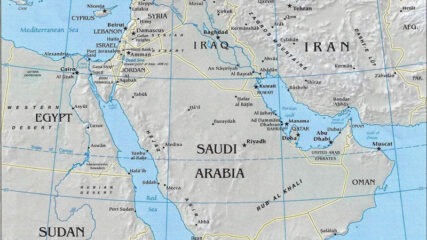
On August 13, 2020, when the United Arab Emirates agreed to pursue full normal relations with Israel, without any Israeli withdrawal from lands it won in the June 1967 war, the sacred negotiating formula, “Land for Peace” that had dominated Arab-Israeli talks for half a century abruptly ended.
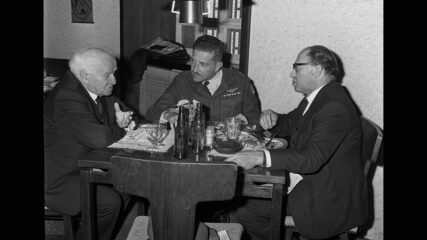
Using original sources and employing perspective are keys to substantive Israel education. Failure to use either, handicaps and prejudices learning about Israel. When documents and texts or a broad overview of the literature in a field are not employed, there is a strong possibility that the educator either has a personal political agenda or, is covering up for their own lack of knowledge of what they are teaching. This premise is true for teaching any country’s history and through the lens of any discipline. I reside in the discipline of history.
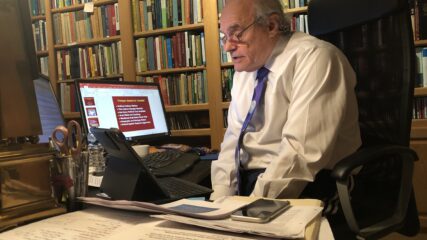
June 10, 2020 By Dr. Ken Stein, Founding CIE President The pandemic has had a blistering impact on our lives. When and where will it end? Unexpected and unnecessary deaths. We have learned that some…

Ken Stein, Emory University, Center for Israel Education, spring 2020 What are turning points or legacy moments in history? That was the focus of my Zoom class at Emory for 80 students in late March…
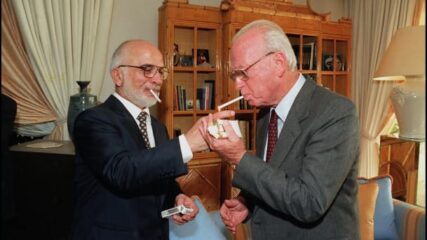
Given the turmoil in Syria, sectarian violence in Iraq, Lebanon’s economic woes, Turkish military adventurism, and Iran’s regional mischief-making, the October 2019, US bipartisan congressional delegation visit to Amman made great sense. It emphasized that for Washington, Jordan is a critical geographic and political asset for America and, for anyone else interested in preserving some measure of regional stability in at least part of the tumultuous Middle East.
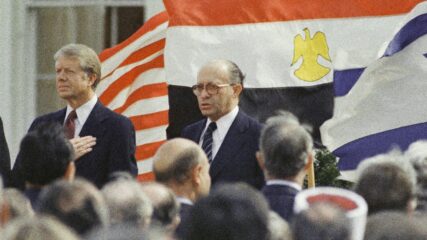
March 25, 2019 Kenneth Stein, the founding president of the Center for Israel Education, has taught Middle Eastern history and politics at Emory for 43 years. He spent more than half that time serving as…